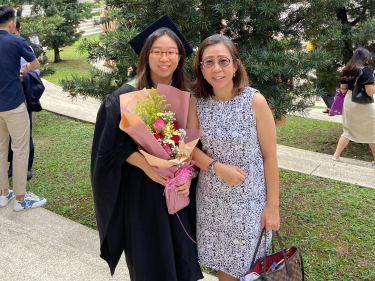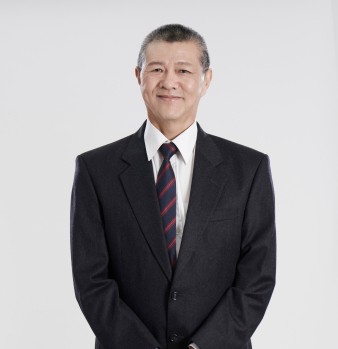
For many women, particularly mothers, health often takes a backseat to the responsibilities of nurturing a family. But on World Ovarian Cancer Day this month, it is time to pause and reflect on one of the most silent and life-threatening threats to women’s health, ovarian cancer.
Ovarian cancer ranks as the fourth most common cancer among Malaysian women. Globally, it is the eighth most common cancer affecting women. Startlingly, around 70% of cases are diagnosed only in the advanced stages, when the disease has already spread and treatment becomes more complex. In Malaysia, the five-year survival rate stands at just 43%, a stark reminder of the importance of early detection.
Dr Tan Teck Sin, Consultant Gynaecologist at Subang Jaya Medical Centre (SJMC), believes that knowledge and awareness are powerful tools in changing these statistics, especially for mothers who can pass on this life-saving information to their daughters.
A Silent Killer That Hides in Plain Sight
“Ovarian cancer is often referred to as a ‘silent killer’ because there are usually no symptoms in the early stages. Many women feel well and continue with their daily routines, not realising something serious is developing,” explains Dr Tan. “By the time symptoms appear, the cancer is usually already in an advanced stage.”
This is partly due to the ovaries being internal abdominal organs, which are not easily accessible, and therefore cannot be seen or felt during routine examinations. Symptoms, when they do emerge, are often vague and easily mistaken for digestive or menstrual issues, such as persistent bloating, abdominal discomfort, noticeable abdominal enlargement, loss of appetite, and even breathing difficulties in severe cases.
“These symptoms are so non-specific that patients often consult general practitioners, general physicians, general surgeons or gastroenterologists before they are referred to a gynaecologist,” Dr Tan adds. “This delays diagnosis, often with serious consequences.”

Ms. Lee Yoke Woon and her daughter.
A Mother’s Story: From Shock to Strength
For Ms Lee Yoke Woon, a 59-year-old mother, the first sign of trouble felt no different from a urinary tract infection. “I had abdominal pain, nothing alarming. But in June 2020, I was diagnosed with ovarian cancer. It was shocking, especially since I’ve always been the ‘healthy’ type,” she recalls.
Her diagnosis shook her family, especially her daughter. But it also brought them closer and led to positive lifestyle changes. “My husband and daughter started to eat healthier and became more aware of early symptoms. He made a special effort to cook nutritious meals and keep me emotionally stable.”
Ms Lee credits her family, friends, and church members for helping her through the difficult journey. “It was challenging and emotional, but also meaningful. I learned not to take health for granted.”
A Mother’s Message: Talk to Your Daughters, It Could Save Their Lives
For Ms Lee, surviving ovarian cancer gave her more than just a second chance - it gave her a mission to protect her daughter through knowledge and conversation.
“As a mother, my instinct has always been to protect my child. When I was diagnosed, it was devastating to see how shocked my daughter was. I’ve always been the fit-looking type, no one expected cancer to hit our family,” she says.
That moment led to important changes, paying closer attention to their health, and most importantly, started talking. “I tell my daughter now, don’t wait. Listen to your body. If something feels off, speak up and go for a check-up. A quick visit to the gynaecologist can make all the difference.”
For her, these conversations are no longer optional. They are life-saving.
“As mothers, we teach our daughters how to walk, how to study, how to be kind. But we must also teach them to understand their bodies, recognise warning signs, and prioritise their health. That is one of the most important lessons I can pass down.”
With her voice steady and full of purpose, “If I had waited any longer, my story might have ended very differently. I urge every mother to talk to their daughter today. Not tomorrow - today.”
This shared responsibility, from mother to daughter, is what Dr Tan believes can help break the silence around ovarian cancer. “A single conversation could be life-saving,” he adds.

Dr Tan Teck Sin, Consultant Gynaecologist at Subang Jaya Medical Centre (SJMC).
Understanding the Risk
While anyone can develop ovarian cancer, certain factors increase the risk. “Age, subfertility or having no children, a family history of ovarian or breast cancer, and specific gene mutations like BRCA1 and BRCA2 (genes linked to a higher risk of breast and ovarian cancer) all contribute,” says Dr Tan. Other less significant risks include early menstruation, late menopause, and conditions like endometriosis.
About 25% of certain common types of ovarian cancer have a hereditary basis, making it vital for women with a family history to consider genetic testing. “However, genetic screening must be approached carefully. There are also non-medical implications like insurance coverage to consider,” he adds.
Dr Tan shares that younger women today, especially Gen Z, are increasingly choosing the DINK (Double Income, No Kids) lifestyle. “While that is a personal choice, it is important to know that having children can offer significant protection against ovarian and uterine cancers,” he says. “This makes conversations about reproductive health even more important between mothers and daughters.”
Why Screening Isn’t Enough, but Education Is
Currently, there is no reliable universal screening method for ovarian cancer. Tools like transvaginal ultrasound and the serum CA-125 tumour marker (a blood test that measures a protein sometimes elevated in ovarian cancer) are helpful but not foolproof. “These tests can lead to false positives, resulting in 'unnecessary' surgeries,” Dr Tan explains.
This makes awareness all the more important. “We must teach women to listen to their bodies and act early, even if symptoms seem trivial. A mother who understands these signs can protect herself and educate her daughter. That’s a legacy more powerful than anything material.”
Hope Through Innovation and Compassionate Care
Treatment for ovarian cancer often involves surgery and chemotherapy. While surgery remains the mainstay of treatment, minimally invasive surgery (MIS) has gained attention in recent years. “MIS has hardly any role in the surgical treatment of ovarian cancer, even in early cases,” Dr Tan shares.
However, for younger women diagnosed in early stages, there is room for fertility-preserving approaches. “We have to consider fertility-sparing surgery, or cryopreservation (freezing) of eggs or ovarian tissue before treatment. Unfortunately, facilities for cryopreservation are still limited in Malaysia,” he adds.
A multidisciplinary approach remains crucial. “Ovarian cancer is complex and requires input from oncologists, palliative physicians, radiologists, fertility specialists, and supportive staff like oncology nurses and physiotherapists. This team effort ensures the best outcomes and quality of life for patients.”
Source:
